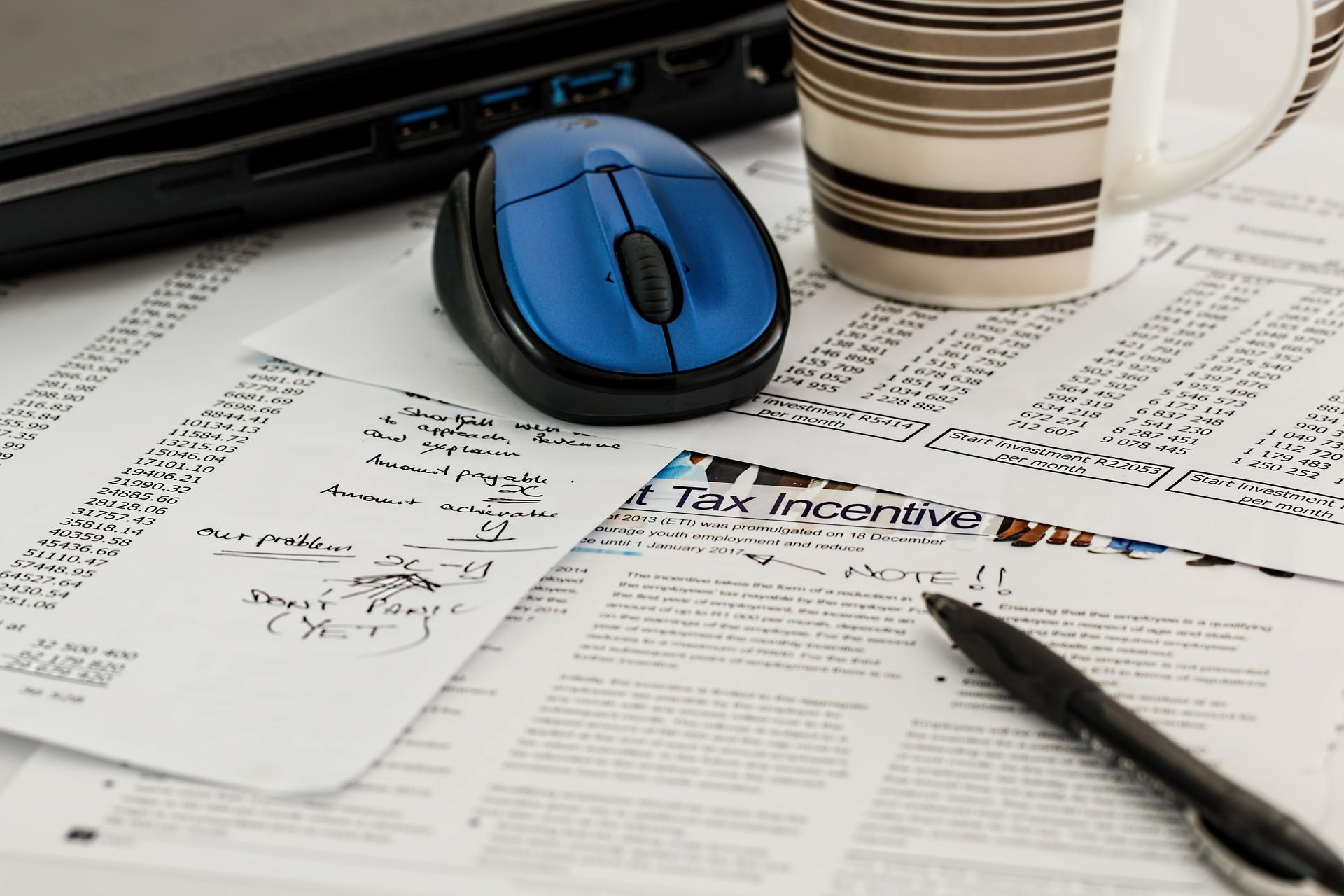
5 Reasons to Change Your GST/HST/QST Reporting Period and How to Do It
When starting a business the selection of the GST/HST or QST reporting period i.e. how often to file your sales tax returns is often based on new business considerations. Many new business owners are quite enthusiastic and/or orderly and therefore would prefer to file their reports and pay the balance owing on a more regular basis. Conversely owners might be concentrating on the other aspects of running their business and do not want to be bothered with the administrative hassle of regular monthly or quarterly reporting. In this case, you might select the annual reporting option to make the year end reporting requirements as simple as possible. As time passes and your business evolves, you might realize that the option that you initially selected may no longer be the most optimal.

10 Year End Financial and Tax Tips for Your Small Business
As the end of the year approaches, some of us find ourselves overwhelmed by top 10 lists, the shopping masses and endless renditions of Christmas Music. Businesses tend to experience a slowdown, which makes it the perfect time for small business owners to take a closer look at their overall business, financial and tax situation. When you are not buying gifts for your customers, family and friends, a review and analysis of your business will allow you to optimize your current financial situation, implement some beneficial changes that can help avoid last minute tax preparation stress and also prepare for the future.

Revenue Canada Interest, Penalties and Payment Arrangements for Income Tax and GST/HST Returns
Whether you are an individual or a business in Canada, taxes are an inescapable part of your existence. All sources of income need to be calculated, tax returns needs to be filed and taxes owing must be paid. This is somewhat facilitated if you are an employee as your employer tends to take care of the majority of remittances. Self-employed individuals, sole proprietorships, partnerships and corporations on the other hand, must account for their income and expenses , determine taxes payable and remit the appropriate amounts. Additionally, businesses are also responsible for other filings including GST/HST and QST and payroll. A lack of knowledge, imperfect accounting systems and the business of running a business sometimes interfere with the timeliness of filings. The Canada Revenue Agency attempts to curb these tardy behaviours by imposing penalties and interest on late filings as follows:
Unincorporat

Is the Quick Method of Reporting GST/HST & QST the Right Choice for your Small Business
If you are self employed or a small business with annual sales between $30,000 and $400,000, it might make sense to select the Quick Method of reporting your GST/HST and QST, which is essentially a simplified method of reporting sales taxes . While regular reporting of sales taxes requires that you calculate all amounts collected and paid on eligible expenses, the quick method (or simplified method as it is also referred to)requires the application of a single reduced rate to your sales while GST/HST and QST paid on expenses is not deductible. The key details of the Quick Method and its suitability for your business are discussed below:

What Small Business Owners Should Know about Leasing vs Buying their Car, Corporate Ownership of Vehicles and Deducting Car Expenses

What Are the Next Steps After Incorporation
Once you have decided to establish a new corporation, there are certain best practices that you should implement to ensure that your corporation runs smoothly right from the beginning. If you are transitioning from a sole proprietorship to a corporation (unincorporated to incorporated entity), there are some additional steps that you need to take. By being proactive, you can turn your mind to your actual business and avoid unpleasant surprises (such as incomprehensible letters from the government and inconvenient deadlines). This article looks at the next steps you need to take after you have incorporated your business.

Financial Roadmap for Employees Transitioning to Self-Employment
Deciding to transition from being an employee to self-employed business owner/freelancer/independent contractor. can be a significant life event. It can certainly be exciting as you relish the thought of greater freedom, flexibility and the ability to exercise your creativity in ways that you cannot when you are an employee. However, there is also a great deal of uncertainty, both professionally and financially. And while you cannot control the outcome, understanding where the uncertainty might come from will help you be much better prepared.

What Small Business Owners Need to Know About Income Tax Instalments
Transitioning from being a full time employee to small business ownership or self employment means that you need to cultivate self discipline. You can no longer rely on your employer to take care of business functions that do not relate to your job ,and must take a much more active role in ensuring that you remain on top of your obligations whether it is collecting payments from customers, paying bills or ensuring that you do not run afoul of Revenue Canada. One of these obligations requires that you calculate and pay the full amount of your income taxes when you file your income tax return, rather than having your employer remit deductions from your paycheck directly. In addition to having to calculate and pay your income tax, once you exceed a certain income threshold, you are also required to pay income tax and sales tax instalments.

What Unincorporated Small Business Owners Need to Know about Filing Their Taxes
Being a small business owner comes with challenges, not the least of which is doing your taxes. While most Canadian taxpayers have relatively simple tax returns that can easily be completed using software, small business owners have the additional burden of reporting details relating to their businesses. This can seem onerous, but understanding what needs to be done, and when, can significantly help reduce the stress and ensure that the tax filing process is smooth and straightforward.
One of the types of income on which you pay income taxes is what Revenue Canada (CRA) refers to as “income from self-employment” that is essentially the same as income from a small business. If you do have business income, then you are required to declare your business income on a tax return. As an unincorporated small business owner, this business income is reflected on a separate schedule on your personal tax return. The schedule is called a T2125, which is a “statement of business activities” (discussed below) and at minimum requires that you show any income you earned from a business venture. If you have incurred expenses to earn the business income, you may also deduct these from your gross revenues or sales to arrive at net income from business. Unlike a simple personal tax return with no business income, the information that must be reported on a T2125 is generally not simply provided to you on a tax slip, such as a T4 or T5, but must be compiled and calculated.

20 Essential Tax Facts for Small Business/Self Employed Owners
Probably the most popular question posed to accountants and tax preparers (especially around this time of year) is what types of expenses are deductible. The short answer is that an expense is considered to be deductible if it has been incurred with the ultimate purpose of earning income. For example if you purchase a domain name with the intent of setting up a website to sell your goods or services, this would be a deductible expense. However, if the purpose of your website is simply a place to show pictures of your cat, this would not be considered a business and therefore not a deductible expense. Of course if your cat picture website starts to become popular and you decide that you want to actively build this business by advertising on the site or partnering up with cat product resellers, your non commercial hobby could then be considered a business. Since you now have the intent to build a business the income earned would have to be reported and expenses incurred to earn this income would be deductible.

Tax Obligations Every Canadian Small Business Should Know
It is therefore prudent for both sole proprietorships and incorporated businesses to keep on top of their tax filings.
In this article I enumerate the tax obligations for most small businesses in Canada along with links to articles to help you understand each one better.

Essential Facts about Shareholder Loans for Incorporated Small Business Owners
There are three primary ways in which you, as an owner-manager, can withdraw funds from your corporation. You can pay yourself a salary, you can declare a dividend or you can borrow money from the corporation. When you borrow money from your own corporation the Canada Revenue Agency (CRA) has put into place strict rules as to when you have to repay the loan to ensure that the owner-manager does not avoid paying taxes indefinitely.

How to Register a Small Business in Quebec
Budding entrepreneurs wanting to setting up a small business (or becoming self employed), either on a full time or part time basis, are often not sure where to start. The process of registering a business in Quebec, depending on your circumstances, can actually be quite straightforward . Below we look at the questions that you need answer to determine your business registration obligations:

Why and How to Transition from a Sole Proprietorship to a Corporation
When starting your new business, often it makes sense to choose the simplest structure which is the sole proprietorship. This allows you to test the viability of your business idea and to see if the lifestyle and the related stress that goes along with being a business owner suits your personality and is in line with your long term goals. Alternatively, you might want to keep everything simple and not add any unnecessary complexity. Registering and maintaining a sole proprietorship is fairly straightforward ; many business owners don’t put much thought into the financial aspects of it until tax time (when the mad scramble ensues). Once you have a corporation, however, the level of complexity and commitment increases

What Types of Advertising/Marketing Expenses Can Small Businesses Deduct?
In the past advertising for small business owners mostly involved ads for print, television or radio (a catchy jingle was always a good way to go), cold calling (rarely a pleasant experience), sending out flyers or courting potential customers at a conference. Unfortunately, these types of advertising were problematic in that it is difficult to gage the direct impact of their effectiveness. Additionally, they were often fairly costly, which can especially difficult for small business owners to afford.
Over the past few years the avenues for advertising have grown exponentially. Many types of advertising don’t even cost anything, except time. You can buy ads on numerous social media outlets that appeal to your target market or if you want to go the free route, you can set up a social media account, post regularly and build an audience. Alternatively, you can set up a website which you can then optimize so that google and other search engines display it when someone is looking for your product or service. Email newsletters are also another effective and direct way of reaching potential buyers. One of the great benefits of these types of advertising is that you are better able to monitor the effectiveness of your chosen strategy.
